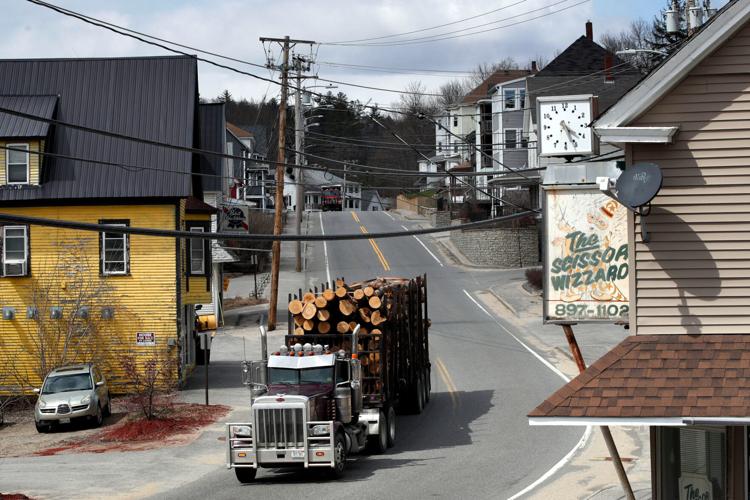Maine loggers hope for federal relief amid COVID-19 economic downturn

A logging truck travels April 16, 2020, through Jay, Maine.
(The Center Square) – Long before the COVID-19 pandemic, Maine’s logging industry faced hard times, and the worldwide economic contraction has meant more financial difficulties for local manufacturing.
As paper plants in Asia canceled orders or closed shop altogether, it’s further lowered wood prices, the Portland Press Herald reported.
At Nicols Bros. Logging in the Oxford County town of Mexico, which has operated for more than 40 years, business is down a third from typical levels.
“It’s pretty uncertain times right now,” Jim Nicols, who also serves as president of the Professional Logging Contractors (PLC) of Maine, told the Herald. “This is probably the lowest point that I’ve ever seen.”
A Paycheck Protection Program loan has helped Nicols avoid layoffs, but the future is uncertain.
If some logging businesses don’t survive the decline, it will hurt the industry as a whole, Nicols said.
PLC Executive Director Dana Doran said in a news release that surveys of Maine loggers show 88 percent are financially struggling due to the pandemic, and the group is urging financial help for the industry at the federal level.
U.S. Sen Susan Collins, R-Maine, led a bipartisan legislative coalition, including U.S. Rep. Jared Golden, D-Maine, to introduce the Loggers Relief Bill earlier this month.
“The economic uncertainty and loss of markets created by the COVID-19 pandemic have hit the Maine logging and forest trucking industry at a time when it was already suffering from the effects of a mild winter, early spring, and low profit margins,” Doran said.
“Without federal relief, many in this industry will not survive. They need help now, and we are thankful for Senator Collins’ and Rep. Golden’s recognition of these challenges and for working towards a solution that can keep our hard-working logging and trucking families employed while preserving the future of the industry and the rural communities that depend on it,” Doran said.

